Night Vision

Ten true accounts of life-altering dreams that portended the future
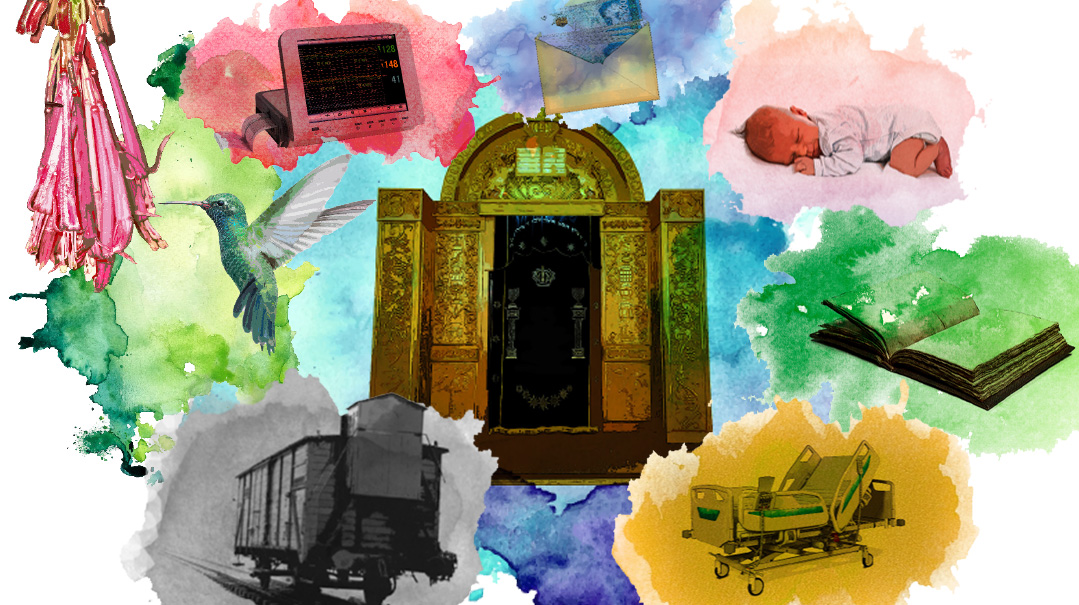
Project Coordinator: Rachel Bachrach
These are the weeks of dreams – dreams that changed the course of history for Yosef Hatzaddik and the world around him thousands of years ago.
Because while many dreams can be dismissed as the nocturnal playback of an overtired brain or overstressed system, sometimes they’re a way of connecting to higher realms in ways our conscious mind doesn’t understand.
Many of us have experienced a life-changing dream, a meaningful message in our sleep, or a night-time visit from the Other World.
TEN TRUE ACCOUNTS OF LIFE-ALTERING DREAMS THAT PORTENDED THE FUTURE
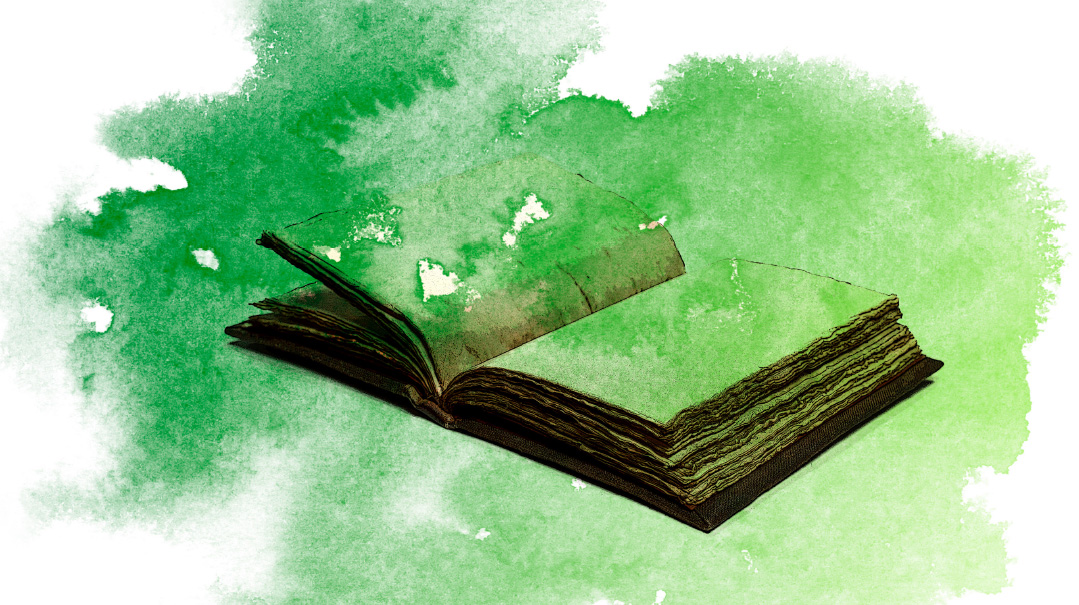
Rav Breuer’s Dream
For all the pünklichkeit for which Rav Breuer and the yekkishe community are known, the one area he was not meticulous about was ending his learning seder on time
IN the mid-1970s, my father, Rav Yaakov Yitzchok Weinberg z”l, started learning with Rav Dr. Yosef Breuer, the venerated rav of K’hal Adath Jeshurun in Washington Heights, New York. The chavrusashaft began at the behest of Rav Breuer’s family, who sought to set up the elderly rav with a chavrusa so he could maintain his sedorim even as his eyesight waned. Every morning, my father walked to the home of the Rav’s daughter, Meta Bechhofer, at 50 Overlook Terrace, where he would join Rav Breuer in his study for their 10 a.m. sessions.
Surrounded by large tomes of Gemara (one volume on the shared desk, a second on a shelf that pulled out from the desk, and yet another on the stool nearby), the pair would blissfully submerge themselves in the Yam HaTalmud as they methodically made their way through the Gemara, Rashi, Tosafos, and the main Rishonim on each daf, basking in the joy of pure limud haTorah. The session officially went until noon, but for all the pünktlichkeit (punctuality) for which Rav Breuer and the German community are known, the one area he was not meticulous about was ending his learning seder on time.
The very fact that my father and Rav Breuer could learn together was inspiring and wondrous: My father, a Polish Gerrer chassid originally from Lodz, was in his forties. The Rav, a leader and scion of an aristocratic German Jewish family, was already in his nineties. Yet despite their vastly different backgrounds and even a formidable language barrier — my father spoke in the chassidishe Yiddish of his youth and the Rav conversed in a sophisticated German — they transcended the barriers of semantics.
Rav Breuer is remembered for his profound writings, for the large kehillah he built, and for being the foremost expositor of Rav Samson Raphael Hirsch’s hashkafah of both Torah im derech eretz and austritt — Rav Hirsch’s principle of an independent, Torah-true kehillah without any association with Reform Jewry.
But those who knew him well remember Rav Breuer first and foremost as a brilliant talmid chacham and an unbelievable masmid. Before the war, he had served not as rav, but as rosh yeshivah of the Frankfurt yeshivah, devoting himself completely to limud haTorah. Even after assuming the mantle of community leadership, Rav Breuer prioritized limud haTorah for his balabatim and took great nachas when younger members of the kehillah attended the great yeshivos and commited themselves, as he taught, to Torah learning, irrespective of what they did in life.
In the early 1950s, a stream of survivors who had been in DP camps since the war’s end started to trickle into America. Many of them, even those of Polish and Hungarian origin, were attracted to the beautiful kehillah in Washington Heights, including my family. We were welcomed with open arms by Rav Breuer and the kehillah, and I grew up in Washington Heights and attended the “Breuer’s” school.
When we first arrived in the Heights, my father, an outstanding talmid chacham, began learning in the Dombrover Shtiebel. He later joined a chaburah that attended a twice-weekly Gemara shiur given by Rav Breuer in his home. There their relationship was kindled, because even with the age and language barriers, my father understood Rav Breuer. When the Rav’s eyesight weakened to the point that he could no longer read the text of seforim, the Breuer family requested that my father learn regularly with the Rav.
Their chavrusashaft enjoyed not only an unlikely and beautiful camaraderie but also a great deal of siyata d’Shmaya, as one anecdote reveals. It almost went untold — in fact, we learned of it neither from Rav Breuer nor from my father, but from a family friend.
One day, my father and the Rav came across a puzzling kushya. The difficulty consumed the remainder of their seder together, and they left off without resolving it. The next morning, my father arrived as usual at 10 a.m., and as soon as he entered, it was clear that Rav Breuer had been eagerly awaiting his arrival.
“Last night, I had a dream,” the Rav told my father. “The Chasam Sofer came to me and said, ‘I had the same kushya, and I wrote a teretz in my sefer.’ ”
The Rav could barely see at the time, yet he knew exactly where each sefer was. He pointed to the spot on his seforim shrank where a worn copy of Chiddushei Chasam Sofer al HaShas sat. The Rav asked my father to take it down and to turn to the daf they were learning. There, precisely where he anticipated, was an answer to their kushya.
Neither Rav Breuer nor my father felt the need to share the story with their families, that day or ever; the story came to light only after my father met a descendent of the Chasam Sofer who was Rav Breuer’s talmid and mentioned it to him.
The fact that a gadol of a previous generation had come to reveal a teretz to their question was of little import to the Rav and to my father. The main thing was that their kushya was now resolved, and the two chavrusas sat down to continue their seder.
Rachel Elbaum is the general studies principal of Bais Brocho D’Stolin Karlin. She lives in Brooklyn, New York.
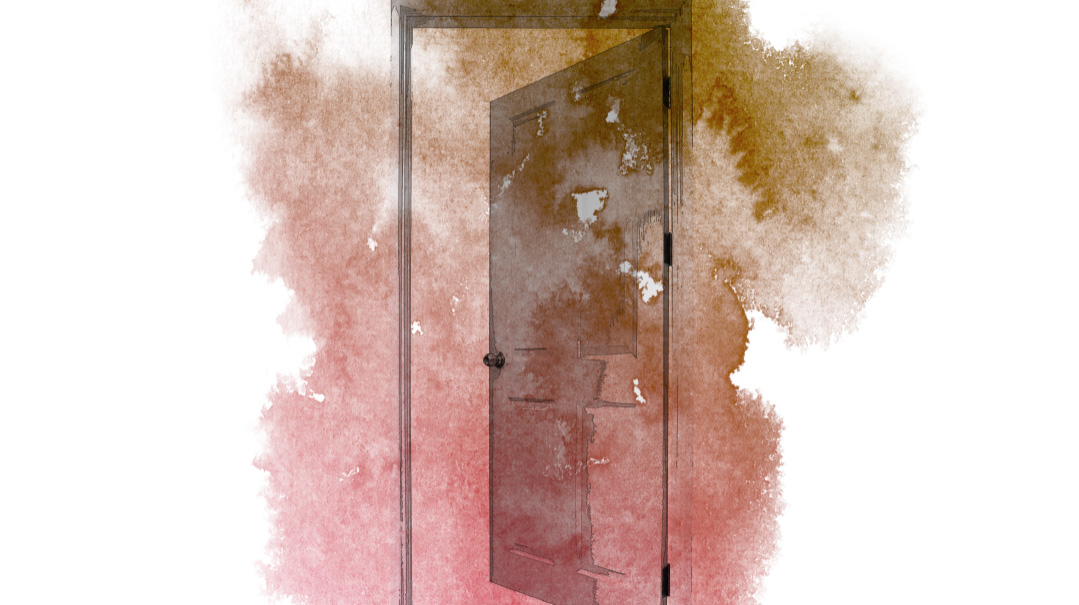
A Lifelong Learner
The Chofetz Chaim told my grandfather, “Today you’re going to give the shiur”
MYgrandfather Reb Yakov Pinchas Goralnik was born in the outskirts of Kamenitz, Lithuania, and raised in prewar Lita. He learned under Rav Boruch Ber Leibowitz in Kaminetz and grew close to him. Rav Boruch Ber took him under his wing as a son, so much so that my grandfather even accompanied Reb Boruch Ber on various missions and journeys.
Then came the war. The yeshivah relocated to Vilna. My grandfather was among the younger boys in the yeshivah, and his mother asked Rav Baruch Ber if he should go along, given his young age.
“He should stay with the yeshivah,” Rav Bruch Ber replied, and he gave him a brachah.
After the war, my grandfather went to America to learn in the newly-established Beth Medrash Govoha in Lakewood, New Jersey, under Rav Aharon Kotler; he was from Rav Aharon’s first talmidim. Rav Aharon recognized my grandfather’s diligence in learning and his sterling character, and he grew fond of his treasured talmid, referring to him endearingly as “der klainer Chofetz Chaim — the mini Chofetz Chaim,” because of the qualities he noticed in him. And so, Rav Aharon became my grandfather’s moreh derech.
My grandfather lived his life with these two luminaries, Rav Boruch Ber and Rav Aharon, guiding and lighting his way. He lived by their words, by their practices which he’d seen up close, by the Torah he’d learned from them, and by their wisdom.
He’d live with them his entire life. Wherever he went, he was an emissary of his two rebbeim.
The American culture never infiltrated his life. Once, on a visit to Eretz Yisrael, he visited the Brisker Rosh Yeshivah, Rav Avraham Yehoshua Soloveitchik. The Rosh Yeshivah turned to his talmidim and said, “Bochurim, take a good look at a Yid who’s living 40 years in America and still looks like he arrived yesterday on the ship from Kamenitz.”
In 1970, my grandfather relocated to Mount Kisco with his family, where he became mashgiach in the Nitra yeshivah and had a tremendous impact on the talmidim there. He delivered mussar shiurim in the yeshivah, and for 30 years he gave shiurim in Chovos Halevavos and Sefer Chofetz Chaim to the Nitra balabatim.
When my grandfather was 80 years old, he had a dream on the night of Hoshana Rabbah. He saw Rav Boruch Ber and Rav Aharon, his two formative rebbeim. They were wearing white kittels and smiling brilliantly as they motioned to him.
“Reb Yakov Pinchas, come with us,” they said, and they started down a very long hallway.
They arrived at a door, upon which a plaque stated, “Yeshivas Chovos Halevavos.”
Inside, a great many people sat learning the sefer Chovos Halevavos. The Chofetz Chaim himself was at the far end of the table, and it was he who told my grandfather, “Today you’re going to give the shiur.”
At this point, my grandfather awoke, trembling from the dream. Rav Boruch Ber, Rav Aharon, Yeshivas Chovos Halevavos, the Chofetz Chaim… What did it mean? He was in good health, there was no reason for his mind to go there, yet he had a foreboding feeling.
My grandfather didn’t share the details of the dream with any of us. My uncle and his family were in Mount Kisco for Yom Tov (my grandmother was no longer living), and he simply told my uncle that although he’d had many dreams, last night he’d had a dream that was “real,” and he wanted to do hatavas chalom, the procedure to interpret even a bad dream positively.
The next morning, on Simchas Torah, my grandfather went to the Nitra Dayan and relayed the dream. The Dayan tried to alleviate his fears, brushing away the whole thing and reassuring him that he should continue his avodah and learning, but my grandfather still felt the dream meant he was being summoned from Above, and he didn’t allow himself to be placated.
Two weeks after Yom Tov, my grandfather contracted an infection which was treated for a number of days intravenously with antibiotics. At his follow-up visit, the doctor examined him and sent him home, saying, “You’re as good as new.”
Two weeks later, my grandfather seemed to have a fever. In the wee hours of the morning, he entered my uncle’s room and said, “Please call Hatzolah, I’m not feeling right.” He asked my uncle to pack up his tallis, tefillin, and the sefer Da’as Chachmah Umussar by Rav Yerucham Levovitz.
In the hospital, my grandfather underwent a battery of tests, and while they were waiting for the results, he asked my uncle for a cup of water. Since he’d been told he should not drink in order for the test results to be accurate, my uncle couldn’t oblige. A few minutes later, my grandfather once again asked for water. In desperation, my uncle called his sister.
“It’s so unlike Tatty to be insistent like this,” he said.
The nurse relented and allowed my grandfather a sip, and he made a fervent “shehakol” before drinking.
Suddenly, his condition worsened, and the hospital started working on a transfer, but by evening, it was clear the end was near. It was so unexpected, we were unprepared. Some of the family drove down to the hospital, but by the time they arrived, my grandfather was already in the Olam HaEmes. That cup of water he insisted on had one purpose only: to allow him to make the bircas shehakol before he was niftar.
When his children were sitting shivah, my uncle called the Nitra Dayan to hear the details of my grandfather’s dream. He knew it was significant, my grandfather had said that much to him, but he didn’t know what the actual dream had been.
“I want to tell the family the dream,” the Dayan said. But he added, “Focus for now on sharing stories about your father’s greatness and his life with those who come to comfort you during the week of shivah. Come to me as soon as shivah is over, and I will tell you the dream.”
The following week, the close family members found themselves gathered at the home of the Nitra Dayan.
“One must lead his life in preparation for the Next World, for it’s precisely that with which one is occupied in This World that he will continue to do in the World to Come,” the Dayan began.
“The deep relationship your father shared with his rebbeim was a mutual one. When he was summoned to the Beis Din shel Maalah, it was his rebbeim who were with him, just as they had been there for him during their lifetime. And this is what he dreamed exactly a month before his petirah.”
The family sat, spellbound, as the Dayan recounted the details of my grandfather’s dream.
How fitting it was that these rebbeim, who had been guiding him all his life, invited him to say the shiur he’d been learning and teaching all these years. And how comforting for us, his children and grandchildren, to think of our grandfather, up in the Yeshivah shel Maalah, in Yeshivas Chovos Halevavos, sharing the Torah he lived by at that long table, in the embrace of the rebbeim he held so dear, with the Chofetz Chaim looking on.
Ratzi Goralnik is a granddaughter of Reb Yakov Pinchas Goralnik. She lives with her family in Monsey, New York.
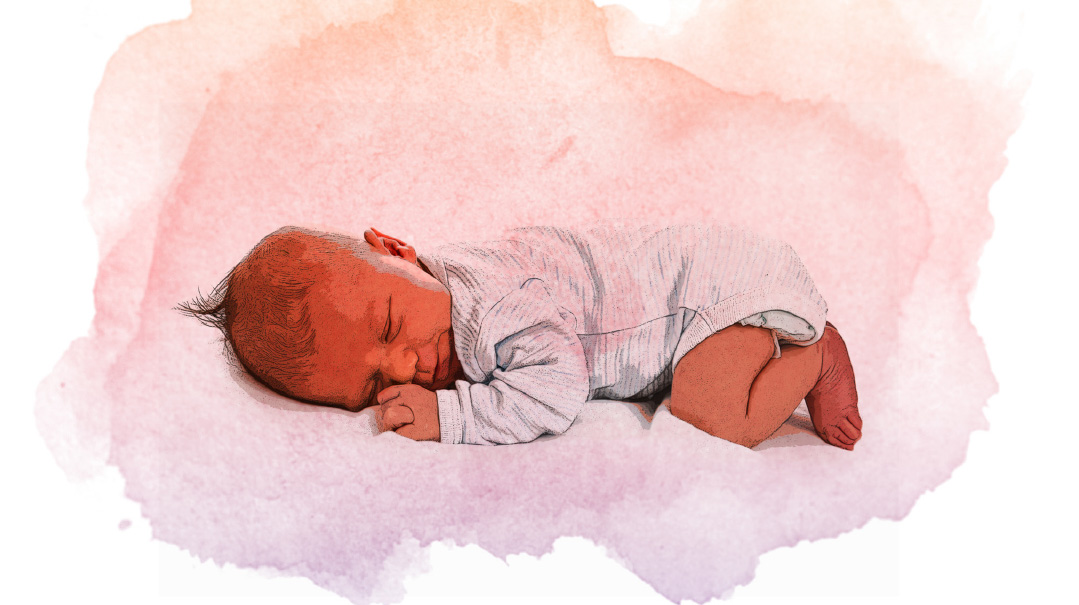
Shedding Light
Did Bubby really want me to wake up, get dressed, and go to my sister’s house — just to tell her about a dream?
IT was 1999, and my grandfather — Zeidy to us, Rav Yaakov Weinberg to the world — was very sick.
Zeidy lay in the hospital, slowly succumbing to cancer. His grandchildren flocked to see him, among them my eldest sister, Ayala Malka Shoshan. Newly married and early in her pregnancy, she stood next to Zeidy’s bed.
“You need to be there when I have my baby, Zeidy,” she pleaded. She knew it was an irrational hope.
Zeidy’s eyes were closed, but to her surprise, he opened them and nodded emphatically, as if to say I’ll be there. We were so desperate for it to be true, we allowed that small gesture to reassure us.
But just a few weeks later, on the 17th of Tammuz, the day marking the beginning of the most sorrowful time in the Jewish calendar, Zeidy was niftar.
It was a deep loss for the extended Jewish world, a loss for the entire Baltimore community where he was rosh yeshivah of Ner Israel, and of course, it was a profound and irreplaceable loss for his children and grandchildren. We were broken.
Five months later, at 4 a.m., we got the call: Ayala Malka’s baby was born!
Before he even hung up the phone, my father was already checking prices for a train from Atlanta, where we lived, to Baltimore, where Ayala Malka and her husband were at the time. A train ride was the most exciting option for us kids, but soon my parents settled on the cheapest and most practical option — driving up in our (boring) 12-seater. Never mind, there was a baby to meet! A few hours later, we were on the road to Baltimore to celebrate our new niece.
Ayala Malka found some empty apartments for us to stay in for Shabbos. I was placed in a two-bedroom apartment with a few of my siblings in one room, and my recently widowed grandmother in the other. We were looking forward to going to shul Shabbos morning to hear the baby’s name.
But it wasn’t even 6 a.m. when Bubby woke us. She stood at the entrance to our room, her face white and her body trembling.
“Russy,” she whispered, looking at me. “Go right away to Ayala Malka’s apartment. Tell her Zeidy came to me in a dream, and he said, ‘Ora Shoshan, Ora Shoshan’ over and over again.”
I looked at her in confusion. Did Bubby really want me to get up, get dressed, and go knock on Ayala Malka’s door now? After she was probably up the whole night? “Ora” wasn’t even a family name — this seemed so random, even a little silly.
But Bubby was still shaking; she was clearly distraught. The dream had been too vivid for her to ignore. Even as a 12-year-old, I could see that.
I ran over to my sister’s apartment as night turned to day. The complex was empty, and I was accompanied by only the early morning light and a few chirping birds. I knocked on the door, cringing, feeling a little ridiculous and wondering if Bubby’s dream meant anything at all.
My brother-in-law opened the door, his tired face evidence of the long night behind him.
“Bubby wants you to know she had a dream,” I said uncomfortably. “Zeidy came to her and repeated the words ‘Ora Shoshan’ over and over. She just wants you to know.”
My brother-in-law nodded and thanked me.
I shrugged, made my way back to the apartment, and assured Bubby I had relayed her message.
What we didn’t know was that my sister and brother-in-law had been up all night, and not just because the baby was crying. They were torn about their baby’s name, and they needed to make a decision. They knew they wanted to name the baby Rachel, but my sister felt a strong and seemingly arbitrary desire to add the name Ora. It was almost Chanukah, so she felt it was appropriate. Before Shabbos, they had called a rav in Eretz Yisrael who was well known for his expertise in nigleh and nistar, and they asked him about the name Ora. He discouraged them from using a common noun as a name, but after they hung up, they simply couldn’t shake the desire to use it anyway. Although they couldn’t explain why, it felt important. As Ayala Malka and her husband discussed and analyzed the matter on Friday night, alternating between one or both names, night morphed into morning, and suddenly, there I was, knocking on their door and sharing what seemed to be Zeidy’s choice of name for their baby.
My brother-in-law left quickly to shul and asked his rav if they could speak for a few minutes before davening. He relayed their dilemma and the dream that seemed to answer it.
“The Gemara says dreams contain truth and dreams contain things that are misleading,” the rav said. “But we certainly can understand from this dream that the name can be used, and you should use it.”
My niece was named Rachel Ora that Shabbos morning. And, as promised, Zeidy was there.
Russy Tendler is a writer and photographer from Atlanta, Georgia, whose work has been featured in Family First.
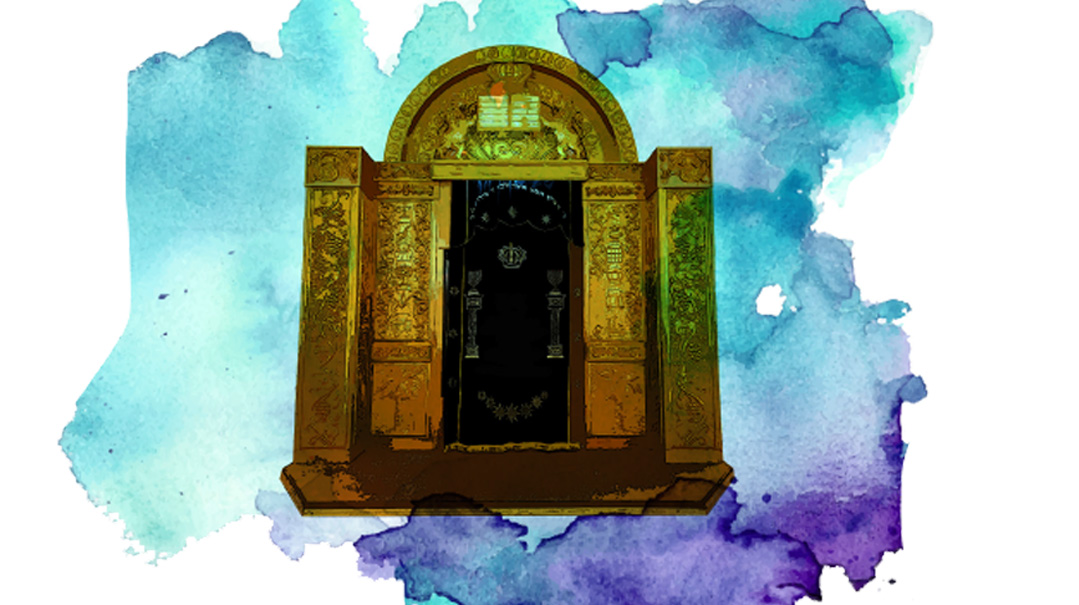
Doorway to Eternity
I had no Jewish ancestry, but the man in the dream insisted I walk through the door
I was raised on Long Island, New York, in a small Catholic Italian community where I lived with my parents and two older siblings. A devout and religious family, we attended services every Sunday at the local Catholic church. When I was about 12, I found myself thirsty for a deeper spiritual connection. I began attending daily church services, which was unheard of in my family. I also began exploring the Old Testament. When I confessed to sins such as eating pork, I was told there was nothing wrong with it, and I was soon full of questions and confusion.
The discrepancies in Catholic dogma piled up quickly, and I was feeling unfulfilled, so I decided to research elsewhere. I started by analyzing my family tree to see if there was any history of other religions. I found some connections to some ancient European religions, but nothing substantial. There was no connection to Judaism at all.
One night when I was 14, I had a dream. I was in a small vestibule opposite two doors, with plaques clearly labeling each one. One door was labeled “Gentiles,” and one was marked “Jews.” I began moving to the door marked “Gentiles,” when suddenly an old man appeared, blocking my path. He was clearly Jewish, wearing a yarmulke and a prayer shawl. There were very few Jews in my neighborhood, and I couldn’t recall seeing anyone like him before, yet he seemed very familiar.
“Enter the door on the right,” the man stated softly but firmly.
“No, sir,” I replied. “That one says it’s for Jews, and I’m not Jewish.”
“The door on the right,” the man repeated.
“But mister, I already told you, I’m not Jewish!”
“Go through that door, that door is for you,” the man said a third time.
“I don’t even have any Jewish ancestry!” I cried, beginning to panic. Instead of replying, the old man reached out, and with surprising force, shoved me through the door and into the room.
I entered a nice, modern looking synagogue. Although I had never been inside one, I had passed a few and seen pictures online. This one seemed to be a Modern Orthodox-style edifice. I looked up to find about ten older men all staring at me. Squirming uncomfortably, I stood there as they studied me intensely. Suddenly, they all spoke at once.
“This is where you belong,” they said. “Welcome home.”
I woke up to my alarm blaring and my heart pounding. I ran into the kitchen and found my parents there.
“Do we have any Jewish ancestry?” I demanded.
“Not that we know of,” my dad replied.
“But who knows?” my mom said. “You’re welcome to research it.”
I spent the next few weeks interviewing my grandparents and feverishly researching our family tree. I so badly wanted meaningful spiritualty in my life and had so far come up empty. Although I was barely a teen, I felt as though this was the last chance I had at a meaningful life.
My relatives’ responses ranged from cluelessness to being slightly offended. Both of my fathers’ parents insisted they had no Jewish lineage, but both seemed to be hiding — or hinting to — something. My mothers’ father had passed away, but her mother seemed to genuinely have no knowledge on the matter.
After some time, I found what seemed to be clear indication of Jewish blood on my fathers’ side. My mothers’ side was a little more complex, but there seemed to be at least reasonable possibility that the family had converted from Judaism to Catholicism several generations ago. In addition, my mother’s family had a few Yiddish sayings and expressions passed down in the family. I had never given it a second thought, as they came from the Bronx, where there were many Jews, and we all just assumed they had picked up the lingo along the way. Now, though, the possibility that we were Jewish seemed more real than ever.
As a young boy unfamiliar with halachah and desperate for a spiritual identity, it seemed obvious to me that I was a Jew. I spent several weeks researching Jewish law and customs until I felt prepared to go to shul for the first time. I showed up at the local synagogue, address courtesy of Google, and approached the rabbi. He greeted me warmly and I told him my story. I assumed the dream, combined with my research and Jewish family expressions, would be an open-and-shut case. However, when I finished my account, the rabbi gravely informed me that according to Jewish law, one needed much more than that to confirm their status as a Jew. He told me he would speak to a beis din and get back to me.
A short time later the rabbi informed me that a beis din had ruled there wasn’t sufficient evidence to establish me as a Jew. He handed me a thin pamphlet on the Seven Noahide Laws and advised me to abandon my new passion and go back to my previous lifestyle.
“You’re young,” he told me. “Go live your life and enjoy yourself. You can always circle back to Judaism later in life if you’re still interested. In the meantime, I don’t think you can wear tefillin or even practice Jewish law.”
I went home feeling crushed and rejected. I decided to try out other religions that were similar to Judaism, or Judaism-based. But I quickly discovered that nothing could match the authenticity and joy I had witnessed in true Torah Judaism. I became more determined than ever to live life as a committed Torah Jew.
Then Covid hit. It seemed like my quest for spirituality would have to be put on hold. During the height of the pandemic, I called no less than 37 rabbis, hoping to meet and discuss what I needed to do to be recognized as a Jew. None were willing to meet me, but that did nothing to dim my fire. I spent the next few months enthusiastically researching Yiddishkeit and learning halachah. I had Shabbos meals at home while my family watched TV. By the time my public school started holding classes again, my parents and I realized there was too much distance between me and my classmates. After much cajoling on my part, they agreed to enroll me into a yeshivah for my senior year.
Around this time, the shuls in my area were finally reopening. I decided to go speak to the rabbi of the Young Israel a few miles from my home. When I entered the synagogue, I got the shock of my life. The shul looked just like the one in my dream!
I explained my situation to the rabbi, who accepted me warmly, as did the congregants, and I was put in touch with a beis din. I trekked the three miles to shul every Shabbos, and there was always a family willing to host me for the meal once davening was over.
Once contact was made with a beis din, my father drove me to Lakewood to meet them. We were quite the sight — my father looking every part the Italian Catholic, and me in my full yeshivah garb. The beis din reviewed my case and told me I would need a geirus l’chumra. In the meantime, they said, it was crucial that I be enrolled in a yeshivah and lead a fully observant lifestyle. When I finally came back a few months later, they seemed satisfied with my progress. However, they informed me that I would need to continue my studies for a few additional months before I could undergo my conversion. I was already enrolled in a yeshivah in Israel for the next year, and it was almost Purim, so this development triggered a lot of anxiety. But I had no choice but to wait it out.
Right before Shavuos, I got a call from the beis din — it was time. Before allowing me to begin the process, the rabbis asked me why I wanted to be Jewish. I paused and reflected, realizing that although I was originally drawn to Judaism because of the strange dream I had several years back and my strong desire to connect to my heritage, I now deeply loved and appreciated the Torah and the values it promotes. I told this to the beis din, we completed the process, and I walked out unquestionably Jewish for the first time in my life.
There was no sweeter feeling in the world.
I now learn in a mainstream yeshivah in Israel and plan to continue learning for at least the next few years. During the time I was discovering Hashem while living at home, my family was exposed to the beauty of Torah and the people who keep it. I would make Shabbos meals often, and the whole family got involved. They are now on their own path of growth and discovery, and I’m excited to see where it may lead.
Baruch Hashem, my Yiddishkeit has developed into something real and genuine. However, I can honestly say I may have never discovered this beautiful life if not for the dream I had when I was 14. The doorway I was pushed through led me into a whole new world.
Chaim Smith is the pen name of a yeshivah bochur studying in Jerusalem, Israel. He originally hails from Long Island, New York.
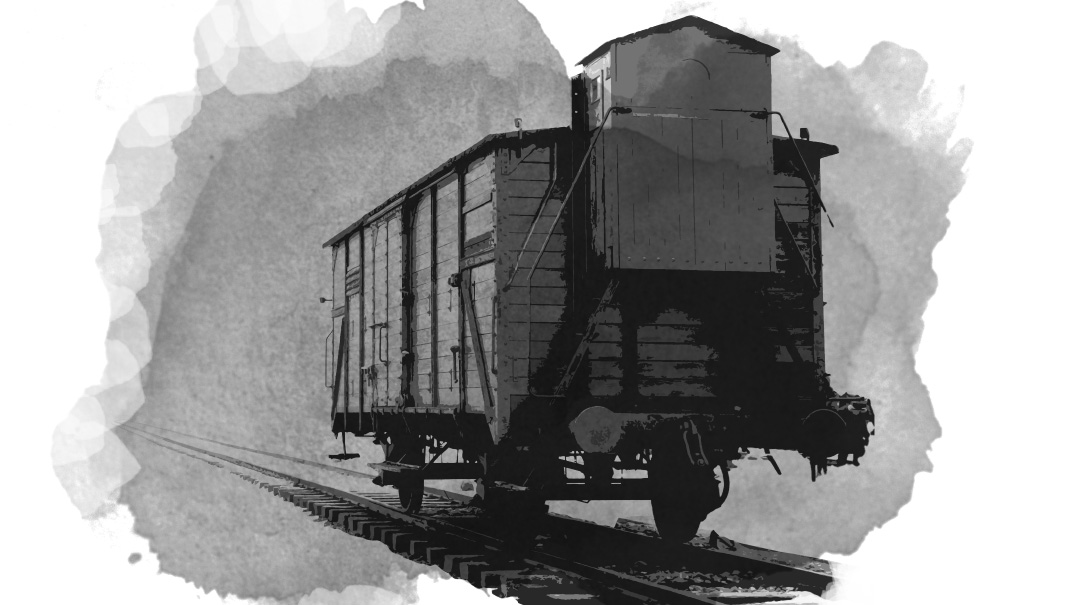
Father in Heaven
How could he escape from under the noses of his captors? They were sleeping in the same room!
IN
the forest clearing, the Nazis looked over the group of Jews.
“Who can dig?” they demanded.
My father, Yerachmiel Yisrael Widawski, was young and fit. He didn’t know what the Nazis wanted, but he started to dig.
A grave, he soon realized. I’m digging one small grave, and another.
When he emerged from the pit, he looked to his right and to his left. On one side were his mother and sister, on the other some young men. My father vacillated for a moment between the two groups before edging toward the men.
“Don’t leave us, come back!” his sister screamed.
“Let him go, maybe he’ll survive,” their mother said. “And we—”
There was a shot from behind. She and her young daughter fell forward into the graves. My father stood on the other side, his face ashen.
That was how the Holocaust began for him.
In my father’s small town of Sdienskvola near Lodz, the Nazis had killed the heads of the Polish kehillah and now his mother and sister. A ben zekunim, the youngest of 12, my father was all alone: His father had died three years prior, in 1937. His other siblings were married and lived elsewhere, and though he was engaged, his kallah was from another city, and he had no idea of her fate.
Will I ever marry her? he wondered. Will I survive today?
My father knew he had to escape, so he ran to the next town. He’d always been bold, fearless even, so much so that at the time, the personal description on his identification card read, “man of guts.” When my father passed the train station, he snuck inside, pilfered a conductor’s uniform, and masqueraded as a conductor for a few days. But the Nazis realized he was an imposter, saw the description on his ID card, and decided to deport him to Auschwitz.
Uncharacteristically — perhaps because they were wary of him? — the Nazis didn’t squeeze my father into the cattle cars with everyone else. Instead, they tied him up and put him in the front car, with five Nazis overseeing the train.
Hours passed as the train clickety-clacked through the countryside. Night fell, and one by one, the officers fell asleep. My father, hands still tied, eased himself over to the window. He said Shema and jumped out of the moving train.
He fell to the ground and lost consciousness. For two days, my father lay there beside the tracks — miraculously undiscovered, because no other trains passed by — until he was awakened by the sound of a flute. He came to and realized with horror where he was.
His foot ached and his shoulder was out of place, dislocated and broken. Slowly, my father limped away. It was summertime, and the wheat stalks had grown high, so he was able to heft himself away from the tracks by holding onto them. As he made his way through the field, he heard the flute — Gypsies, he surmised.
“There’s a good doctor in town,” the band of Gypsies that lived nearby told him, directing him to the doctor’s home, where he received treatment for his injuries.
When he’d entered, he’d noticed there were nail holes where a mezuzah should be.
“You’re a Jew,” he said to the doctor.
“No, no, I’m not,” the doctor insisted.
But a few days later, when his wife was out, the doctor told my father that he was, in fact, a Jew, but even his wife didn’t know. The doctor said my father could hide in his home, which he did for several weeks. Soon word began to circulate that the Nazis were on the lookout for him. The doctor turned my father out, and he fled for the forest.
There he met up with other Jews and partisans, but soon the group was discovered and sent to the Chelmno extermination camp. Thus began his journey through the camps — four in all — where each time he got a Heavenly sign to move on.
Designed specifically for mass murder, Chelmno was where the Nazis used an early killing method — gas vans. This entailed placing about 70 people into a van, sealing the doors, and attaching a tube to the exhaust pipe. When the Nazis turned the engine on, it would pump exhaust inside. After the victims suffocated, the van full of corpses was driven to the forest camp, where the bodies were transferred into mass graves.
My father and his friend Itche Yustman were assigned the task of burying the bodies. Chelmno was just 30 miles northwest of Lodz, and it wasn’t long before my father started to identify some of the bodies of the people who’d asphyxiated only moments before. He recognized members of the community, neighbors, friends. One day, he removed the body of a young boy from the van. It was his nephew.
In the time he was at Chelmno, my father identified the bodies of 13 relatives.
“This is unbearable,” he told Itche repeatedly, “We need to leave.”
They decided to wait for the right opportunity — but one day, as he was burying the bodies, he saw, staring up at him, the beautiful face of his fiancé.
There would be no more waiting for the right opportunity. This would be his last day at this camp.
My father was terrified of escaping — security was extremely tight — and if found, they’d be shot on the spot, but he and Itche knew they had to run.
At first, they decided to kill an officer and take his weapon. But when they approached the officer they’d targeted, their hands began to shake uncontrollably.
“This is a sign from Shamayim,” they agreed. “This isn’t the right way out for us.”
Soon the Nazis announced they were looking for someone to remove the sewage from the camp.
The two friends volunteered for the job, and when they were out of sight, they ran — for 25, 30 kilometers, staying out of sight, scampering over rooftops when necessary, until they came to the city of Piotrokov.
My father and Itche had escaped the deadliest of camps, where about 320,000 people would die, from which only four would escape.
The two young men approached the rav of Piotrokov, Rav Moshe Chaim Lau, father of former chief Ashkenazic rabbi of Israel, Rabbi Yisrael Meir. They told him that 30 kilometers away, the Nazis were murdering thousands in a camp, but until the Rav questioned each of them individually, as one would question witnesses, no one believed them. When Rav Lau was done, he broke down, realizing they were speaking the truth.
Their warning was corroborated when the Gestapo and kapos from Chelmno stormed Piotrokov, hunting for the two escapees. Rav Lau hid my father and Itche until the Nazis left empty-handed.
Then he implored his kehillah, “Whoever has pantoffeln (clogs) on his feet should run.”
Rav Lau actually asked my father and Itche to take his two children, including six-year-old Yisrael Meir, but they couldn’t acquiesce.
“I’ve already had to run through marshes and over rooftops for miles,” my father said. “How can I do that with two young children?”
Soon after, the Nazis entered Piotrokov. My father was interred in one camp, then another, and he miraculously escaped them both. Toward the end of war, my father was captured yet again and sent to a fourth camp. There, he was subjected to a search for concealed valuables. The Nazis didn’t find anything on him, even though he had hidden a small crudely made pair of scissors in his armpit.
“Hold out your hands and open your palms!” the Nazi ordered — but my father was able to keep the scissors in place even while doing so.
Inexplicably, instead of putting him in regular barracks, the Nazis put him together with some Nazi guards. Was it that he had “three-time escapee” written on his forehead? Who knows? But now, sleeping in the same block, how could he even think of escaping?
Then one night, my grandfather appeared to my father in a dream, his face grave.
“Yerachmiel, my son, now is the time to escape. Use your scissors to cut the wire,” my grandfather said.
My father was startled awake. He was trembling and in a cold sweat.
His father. He hadn’t seen him in years! How did he even know about the scissors? But to escape? How could he, from under the noses of his captors? They were in the same room!
After a long time, my father fell into uneasy sleep. Again, he dreamed.
“Now is the time to escape,” said his father.
After it happened a third time, my father understood he had no choice. It says in Kabbalah that it’s hardly possible for someone from the Next World to communicate with This World. If his father had come not one, not two, but three times, he had to do what he was commanded — immediately. My father slipped from his bed out of the barracks and worked his scissors on the wire. He escaped that night.
Ultimately, my father made his way to Hungary. He told the Hungarians that in nearby Poland the Nazis were committing mass murder of Jews, and once again, he was met with skepticism, but in short order the Nazis invaded. My father ran to the outskirts of the town, where he constructed a bunker behind some trees and a river, so it wasn’t visible to passersby. The bunker could accommodate several people, and over the course of its use, 22 people hid there. During the day they stayed holed up inside, and at night they emerged to forage for food.
One night, they heard gunshots. My father went out to investigate; the Russians had come — the war was over!
Soon my father left Hungary. While the bunker’s inhabitants no doubt owed him their lives, he owed his survival to a string of miracles, a series of signs, an insistent dream — and a father and Father who looked out for him from Heaven.
Yitschok Widawski, the youngest son of Yerachmiel Yisrael Widawski, was born in Antwerp, Belgium, where he married and raised a family and worked in the city’s diamond district. His granddaughter Racheli Saurymper contributed to this article.

Shock of My Life
My older brother knew all the right things to say, but all I could think about was how unfair it was
The dream was so vivid that when I woke up, I was shocked to discover I was still in Israel.
My father was unusually strong; at 150 pounds, he could lift almost twice his weight. But he had come to me in a dream that Friday night, and he was exceptionally weak, barely able to walk.
“I need your help,” he called to me weakly. I was terribly shaken.
Sunday morning, I received a telegram from my mother.
Daddy suffered massive heart attack. Come home immediately.
This was in 1974. I managed to get a ticket to fly out that day through France. I borrowed money from a family friend to pay for it, and soon I was standing at my father’s hospital bedside in Seattle.
My older brother had also flown in from New York and shared the vigil with me. The hospital had an on-site dorm room on the same floor where immediate family of the seriously ill could sleep, and that’s where we stayed. That’s how bad my father’s condition was.
My father was conscious and able to communicate, and he had quite a story to tell us about making it to the hospital. He suffered from asthma, and in those days, an asthma attack meant spending the night in an oxygen tent. Ambulances were unreliable, so he would drive himself to the hospital if he felt the need.
My father felt really unwell that Friday morning, so he got into the car and started to drive the seven miles to the hospital. But then his symptoms worsened: He couldn’t feel the lower part of his body, and he had to fight to maintain consciousness. He started to pound his head and tear at his hair to keep himself from passing out.
“Where are the cops when you need them?” he commented wryly when telling us the story.
Finally, he pulled into the hospital’s parking lot. He got out and walked the block to the emergency entrance, falling a few times before reaching the front desk.
“I need help,” he told the nurse there.
“Would you like a glass of milk?” she responded, mistaking him for a drunk.
“I didn’t come to a dairy!” he retorted. Then he collapsed.
He was rushed into the trauma center. My father was weak and getting weaker but he never lost consciousness. His heart was badly damaged and could not pump strongly enough to circulate his blood. The way they explained it to us, his heart was pumping twice for every flow of blood, and then it got worse, three pumps per single flow.
Each time the nurses would return for their three-day shifts, they would comment to us, “You’re still here?”
After two weeks, the head nurse took me and my brother into a separate room.
“Don’t you realize this is the end?” she scolded.
I guess they didn’t like the hope and bitachon on our faces.
Another week, and then another week, with the heart monitor reporting four to one, then five to one. The snide looks on the nurses’ faces didn’t deter us from davening for our father.
One night, the resident told us our father was in cardiac arrest and the situation was critical. He looked at me, turned to my brother, and then back again.
“I can see from the looks on your faces that you want us to maintain life as long as possible,” he said.
“That’s correct, doctor,” we answered at once. “Thank you.”
And so the night continued. The attending nurse came out about an hour later.
“Fifteen more minutes until your father passes,” she predicted.
When she went back into the room, we started davening in earnest. My older brother knew all the right things to say, like Tehillim of the letters “Kra Satan.” But all I could think about was how unfair it was. Here was my father, only 65 years old, and he’d had such a difficult life. He had lost his beloved first wife and child in Treblinka, and he was alone for 12 years until the refugees started arriving from the DP camps and he remarried. None of his four children were married yet.
“Please let my father live a little longer and see some nachas from his children,” I davened.
The doctors started to administer electric shocks to my father’s heart. With the first, he let out a bloodcurdling scream.
At least he’s alive, I thought.
The second, and again he screamed.
The third.
Shortly after they administered the fourth shock, the same nurse exited the room.
“We really don’t know what happened, but after four shocks, your father’s heart kicked back into action. He’s resting now.”
The next morning, my father was wide awake when his regular doctor entered the room.
“Dr. Quinn, I want to thank you for everything you did for me,” he said.
“I didn’t do anything,” Dr. Quinn, who wasn’t Jewish, responded. “You’ve got to thank your two boys here. Their prayers got you out of this.”
After a total of five weeks in the hospital, my father went on to live another seven-and-a-half years, and attended each of our weddings.
At my sister’s wedding — the last one — I saw Daddy dancing vigorously.
“Maybe you should take it easy and sit down?” I suggested.
“And for what am I living, if not to dance at my daughter’s wedding?” he responded.
And all I could think was that yes, he was living. Hashem sent me a dream, and a message, that I could help my father by reaching out to He Who gives life to every living thing.
Dovid Green is a retired software and real estate entrepreneur who learns all day in Kollel Shaarei Halacha in Monsey, New York.
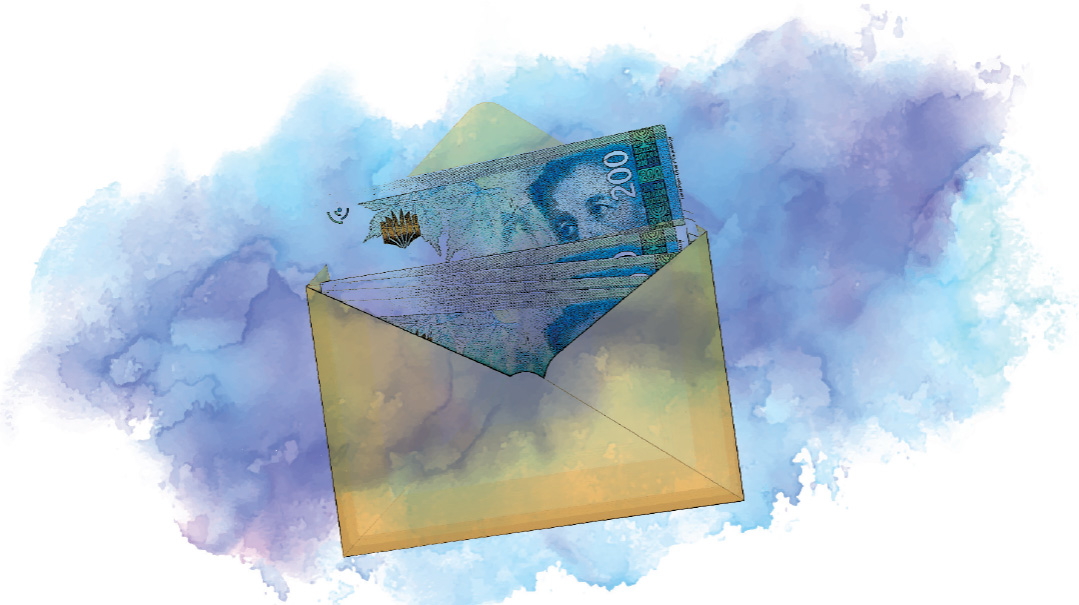
The Source of It All
Rav Nochum had a fleeting thought: If I asked for 20 shekels from each girl, I would have 2,000 shekels!
IN
the crowded anteroom of the study of Rav Nochum Cohen in Yerushalayim, three anxious American seminary girls huddled together. They sat among the dozens of other supplicants from all walks of Jewish life who had come seeking advice and brachos from the gadol with a reputation as a po’el yeshuos. The girls were waiting to receive Rav Nochum’s brachah for shidduchim.
When their turn came, the girls entered Rav Nochum’s study as a group. Rav Nochum spoke with them briefly, asking where each was from, which seminaries they attended, and what their names were. Then he closed his eyes in concentration and gave each his brachah that they should find their zivug bekarov.
After the girls left his study and before the next visitor was ushered in by the gabbai, Rav Nochum had a fleeting thought: As many as a hundred girls come each day for brachos for shidduchim. If I asked for 20 shekels from each one, I would have 2,000 shekels!
Rav Nochum did not share this thought with anyone — he himself didn’t even think any more about it, and by the end of the day he had forgotten all about it.
That night, Rav Nochum had a dream in which Rebbe Menachem Mendel Schneerson, the Lubavitcher Rebbe zy”a, appeared to him. The Rebbe spoke in Yiddish and said, “You should know, the Eibeshter has a lot of hana’ah from you… But money comes only from the Eibeshter!”
Rav Nochum was shaken when he awoke. He immediately connected the dream to his thought the day before about asking for money from single girls who come to him for brachos.
“Even our thoughts are heard in Shamayim,” he emphasized when he shared the dream with me.
Then he continued with the rest of the story.
Approximately a week after Rav Nochum had the dream, a frum businessman came to see him. Upon entering the study, the man placed a thick envelope on the desk.
“What is this?” Rav Nochum asked.
“It’s for the Rav,” the man replied.
“What’s inside?”
“Ten thousand shekels in cash — for the Rav.”
“Do I know you?” Rav Nochum asked gently.
“Perhaps the Rav does not recall, but I came a few months ago,” the man replied. “I had a major business dilemma, and I came to consult with the Rav how to proceed. I followed the Rav’s advice exactly, and baruch Hashem, the deal was successful. Then I thought, ‘What should I do with the maaser money?’ I decided the right thing to do would be to give it to the Rav who had given me such good advice.”
At this point, I was shaking my head in disbelief as Rav Nochum recounted the story, which he later gave me permission to share. He just chuckled and repeated the words he had heard from the Lubavitcher Rebbe in his dream: “But money comes only from the Eibeshter!”
Dr. Meir Wikler is an author, psychotherapist, and family counselor in full-time private practice with offices in Brooklyn, NY, and Lakewood, NJ. His lectures and shiurim are available on TorahAnytime.com.
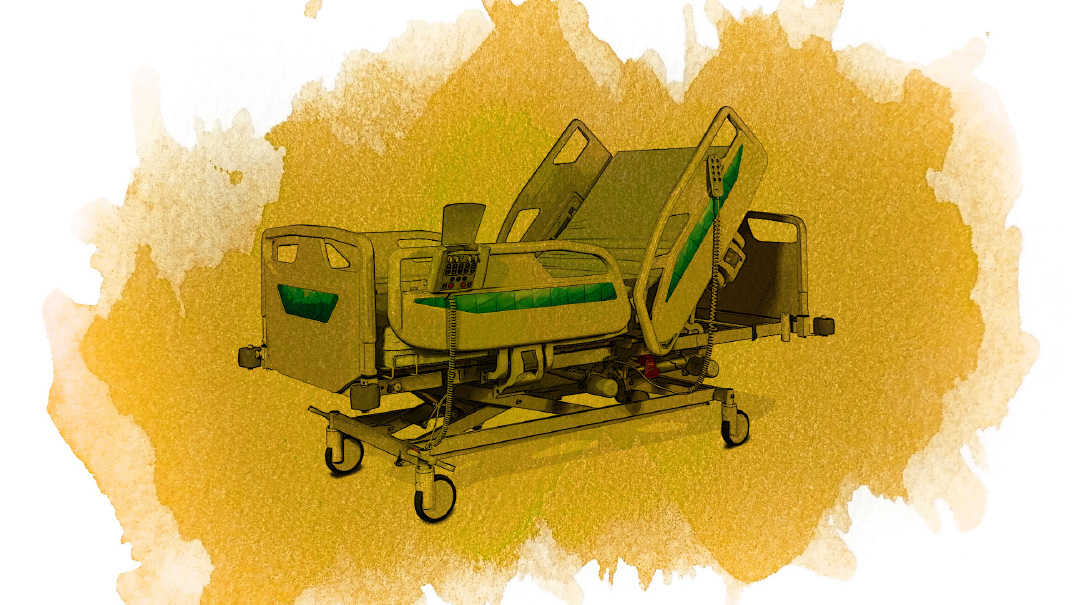
The Gift of Your Dreams
“I’m here because I’m ill,” Mother tried explaining. But her mother insisted that she leave the hospital immediately
IN 1940, my parents decided it was time to evacuate their young family from Stamford Hill. Bombs were raining down on London, turning city blocks into fields of rubble, and wailing sirens sent families scurrying for shelter underground like mice into holes. My mother took us — we were three children at the time — to Waterloo station and asked for tickets for the next train out of London.
“Llandudno is the next destination,” she was told.
Even though my mother didn’t know what to expect in Llandudno, she wanted to get us out, and she booked the tickets.
When we arrived in Llandudno, my parents took over a kosher hotel on the coast of North Wales, a lovely setting for the next five years of our childhood. We were happy and incredibly lucky; while the cities were being intermittently hammered by bombs, we lived in a quiet resort town with a sweeping bay and views of the Irish Sea and the Snowden Mountains.
I was ten years old when my mother became ill. I know now that it was endometrial cancer, but then I just saw that she was weak and ill, and my father was worried. One day, my mother packed a small case, kissed us and waved goodbye, and stepped into a taxi with my father. All we knew was that he was taking her to the hospital to have an operation.
My mother checked into the hospital. The doctors had told her there was no choice — a hysterectomy was absolutely necessary to remove her cancer. The surgery was scheduled for early the next morning, and the nurses made her comfortable for the night.
As my mother lay anxious and alone in a hospital bed in Llandudno, her own mother appeared to her in a vivid dream. In Yiddish, her mother said very clearly, “Leah, gei avek fun duh — Leah, get away from here.”
“I’m here because I am ill,” my mother replied, explaining she needed to have surgery.
But Bubba repeated her urgent instruction to leave the hospital and return home, that there was no need for an operation.
The next day, Mother came home. She was in a dressing gown when she stepped out of the taxi, and she still didn’t look well, but she was back with us, and we knew she hadn’t had the operation after all.
A year after Mother listened to Bubba’s instruction, she was back in the hospital — for the birth of a healthy baby, my younger brother Anthony a”h. The cancer was gone. Mother lived for almost 40 years after that diagnosis, and Bubba’s appearance had given our family the gift of a baby brother.
For a while, my mother nicknamed him “Mashiach,” thinking that perhaps the miracle dream had given her a baby who would be the Messiah. Anthony wasn’t Mashiach, but he was certainly a dream of a younger brother who warmed the world around him with his smile and boundless good humor.
Mr. Leonard Finn is a chartered accountant recognized for his work for the Jewish youth movements of Hendon, North West London. His brother, Councilor Anthony Finn a”h, served the local community for many decades, including a stint as mayor of London’s Borough of Barnet.
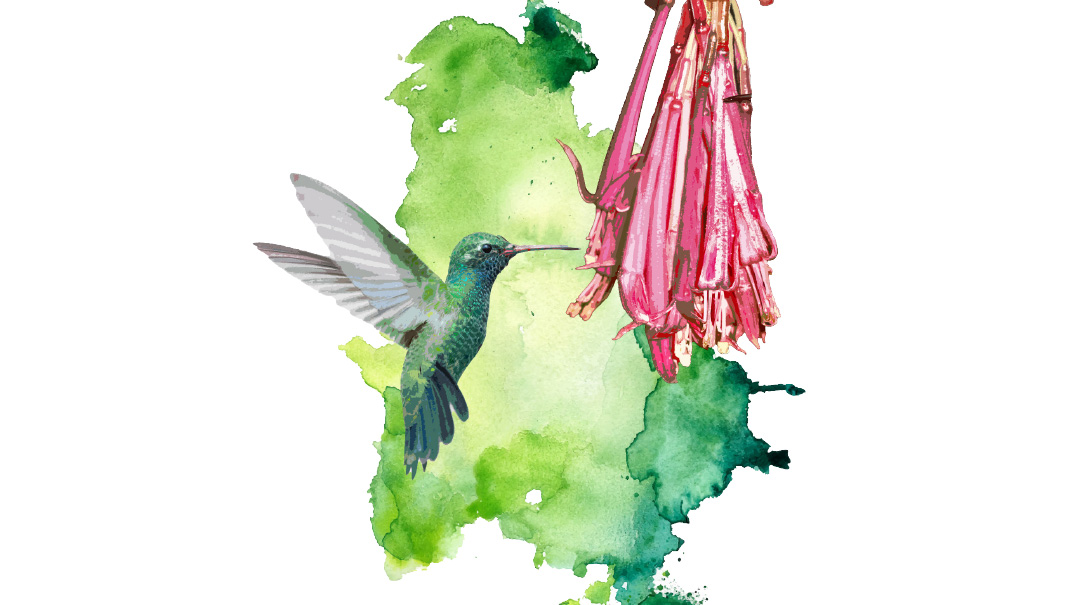
Taking Flight
How could a bird evolve, even over eons, to beat its tiny wings at so fast a rate?
W
hen I came to Neve Yerushalayim in the mid-1980s, you could have called me The Reluctant Baalas Teshuvah. I was a little older than most of the other students at the Jewish women’s college; I had already started a doctoral program in graduate school. I am a skeptic by nature and training, and I was well-adjusted and happy enough that I felt no pressing need to drink the Kool-Aid and upend my life to join those people in long frumpy skirts and dusty black suits.
On the other hand, I was beginning to perceive that Torah contained tremendous wisdom — maybe even, dare I say it, truth — and my intellectual honesty compelled me to check it out more deeply.
One night I had a dream so vivid I still remember it today, more than 35 years later.
The dream requires a little backstory. I was always drawn to spirituality. Five years prior, when I was in college, I took a course called Science and Religion. It was team-taught by a scientist and a minister, both professors. It was deliberately kept belief-neutral, but it examined topics like the limits of science, the limits of religion, and different approaches to connecting with the Divine.
At one point we discussed Creationism, and whether or not Darwin’s theory of evolution had successfully “disproven” the Biblical account. One of the articles assigned came from a journal for religious scientists, and the topic was the hummingbird.
Hummingbirds, I learned, are nature’s tiniest birds. They have long beaks perfectly designed to reach into the depths of a flower, and the males have beautiful jewel-colored plumage. But most unique about hummingbirds is that they have a special wing anatomy that allows them to fly not only forward but up and down, sideways, and backwards, rather like a bumblebee. In order to stay aloft, their wings beat as fast as 80 times a second.
Eighty times a second! marveled the author. Then he asked: How could a bird evolve, even over eons, to beat its tiny wings at so fast a rate? You can’t just work up to that — say, 10 beats a minute for a thousand years, 20 the next thousand years, and so on. It doesn’t add up.
The article left an impression on me, because it was the first time I’d read such a cogent challenge to evolutionary theory.
Fast-forward five years to Neve. At this point I’d read more challenges to Darwin’s theory, but I was still of two minds about Torah Judaism — drawn, yet hesitant.
Then I had the dream: I was hacking my way through a thick, overgrown forest until I came to the edge of a deep, rocky gorge. I stopped abruptly, since there was no way forward — but then suddenly, I found myself floating down slowly to the bottom of the gorge, gently borne through misty air until my feet touched the sandy bottom, near a stream. The whole descent felt very tranquil and otherworldly.
I noticed a branch sticking out of the rock wall next to me. Hovering over the branch was… a hummingbird.
I woke up then, but the mystical feeling of the dream clung to me — and the interpretation came instantly. The overgrown forest I’d been fighting my way through symbolized the clutter of the misguided ideas, habits, and presuppositions of my secular life. Descending into the gorge was about getting past it into the deepest part of myself: my neshamah.
And the hummingbird? The hummingbird told me the world truly is Hashem’s awe-inspiring creation, and that the Torah is true. My job was now to hack away at the weeds and access who I really was at the bottom of it all.
Barbara Bensoussan is a longtime contributor to Mishpacha and the author of A New Song, The Well Spiced Life, and Pride and Preference.
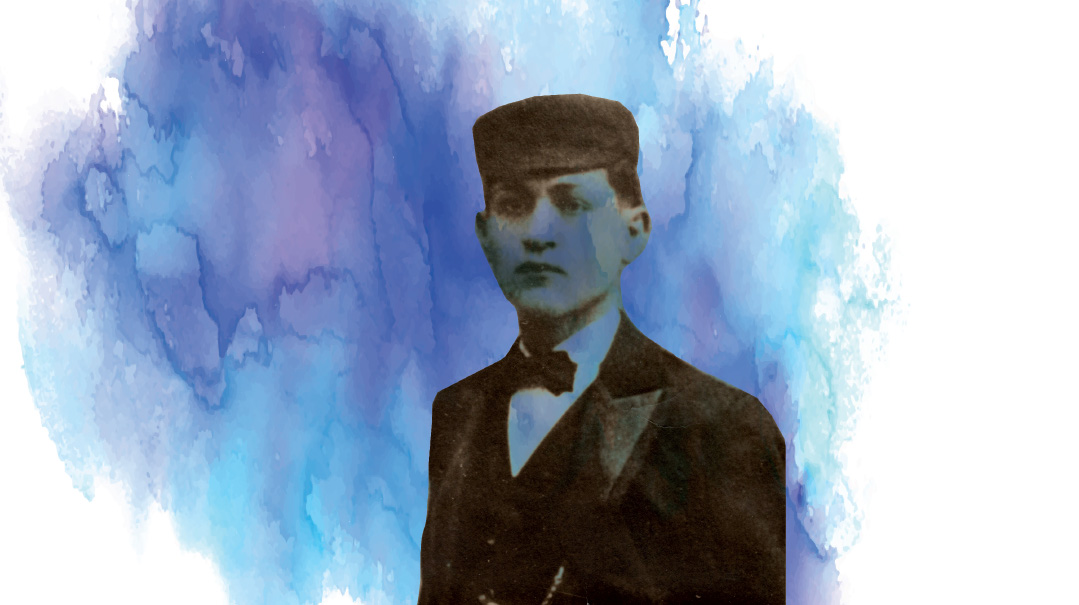
Father on High
There was no logical reason the director would have changed his mind — but Zeide had told him to ask
IT was late 1942, and Europe was engulfed in a war with no end in sight. Outside, the cold winter reigned, and inside the orphanage, my zeide Yudel (Yehuda Zev) Dowek didn’t feel much warmth either.
I have to be a man and show Ela how to say Kaddish for Tatte, Zeide resolved. There’s no one else.
Barely bar mitzvah and orphaned of both parents, Zeide and his younger brother Ela had been placed in an orphanage in Kazakhstan, near the kolkhoz (collective farm in the Soviet Union) where his two older sisters worked. No matter that it was a ten-mile trek from the orphanage to the closest Jewish community; Zeide was determined to spend Shabbos with his fellow Yidden and say Kaddish for his beloved father.
For several months, neither cold nor snow nor barely paved roads could stop Zeide and Ela from the two-and-half-hour walk each way. Despite the difficulty, the brothers never missed a Shabbos Kaddish — but then a Jewish Communist who despised religion became the administrator of the orphanage.
“Yudel, what are we going to do this Shabbos?” Ela asked.
“I don’t know,” Yudel responded. “I asked the new director if we could go before Shabbos as usual, and he said there’s no need for religion in Russia. He refused to give me permission to say Kaddish. Maybe we can sneak out? But the shul is too far away, they’ll catch us before we get there.”
Zeide and his brother were at a loss. They desperately wanted to honor their father, but what could they do if the director refused to allow them to leave?
For the first Shabbos in months, the boys missed saying Kaddish for their father.
That Friday night, Zeide slept fitfully, and his father came to him in a dream.
“Yudel, why don’t you say Kaddish for me anymore?” he asked.
“Tatte, the director refused to let me go. What should I do?”
“Go ask him again,” his father said.
The following Thursday, with a pounding heart, Zeide went to the director to request permission to leave for Shabbos. If not for his father’s instructions, Zeide would not have even tried. There was no logical reason the director would have changed his mind over the course of the week — and it would just get him in trouble.
To Zeide’s shock, without a single negative gesture, the director granted him permission to leave for Shabbos. Zeide didn’t know what changed, but one thing was certain: His Tatte was looking out for him.
Several years later, the war was finally over. Zeide and his siblings made their way out of Russia, and Zeide eventually found himself in the Manchester Yeshiva under the direction of Rav Yehuda Zev Segal.
Zeide had attended cheder as a child, but his education had been interrupted by the war, and whatever he had learned had been forgotten in the effort to survive. Zeide was now an older teenager, but he was placed in the lowest shiur in the yeshivah, and even that was way above his level.
Zeide was nothing if not determined. If comprehending the Gemara was dependent on willpower alone, he would have mastered it in no time. But no matter how hard he tried, he just could not understand it.
Day after frustrating day, Zeide tried to comprehend what everyone else seemed to grasp so easily, but it seemed as if his head was made of stone. Nothing would penetrate.
One afternoon, Zeide’d had enough. In despair, he climbed the stairs to his dorm room, and once safely inside, erupted into inconsolable tears. All the frustration, bitterness, and helplessness burst out of him.
“Hashem, just because I am an orphan, does that mean that I shouldn’t be able to learn?!”
Zeide lay on his bed, alone with his tears, for a long time. Eventually, drained and exhausted, he fell asleep.
At this nadir, his father appeared to him once again.
“Don’t worry, Yudel, soon you will begin to catch on.”
Zeide awoke from his troubled sleep with rejuvenated energy. He returned to the beis medrash to try again. Though on the surface nothing had changed, in reality nothing was the same. From that point on, Zeide began to progress in his learning.
Zeide later joined his sisters in America and went to learn in Torah Vodaath with Rav Gedalia Schorr, followed by Beis Medrash Elyon under the tutelage of Rav Reuven Grozovsky. With much personal effort and tremendous siyata d’Shmaya, Zeide developed into a true ben Torah, learning among some of the greatest talmidei chachamim of his time.
Despite the initial bleak prospects, Zeide’s tatte was there to guide him when he needed him most, leading his son on the path to a beautiful future filled with Yiddishe success and nachas.
L’illui nishmas Yehuda Zev ben Avrohom z”l and Avrohom ben Naftali z”l
Esther Leah Korik lives in Ramat Beit Shemesh, Israel, and works as a human resources specialist for a real estate management company.
(Originally featured in Mishpacha, Issue 941)
Oops! We could not locate your form.

